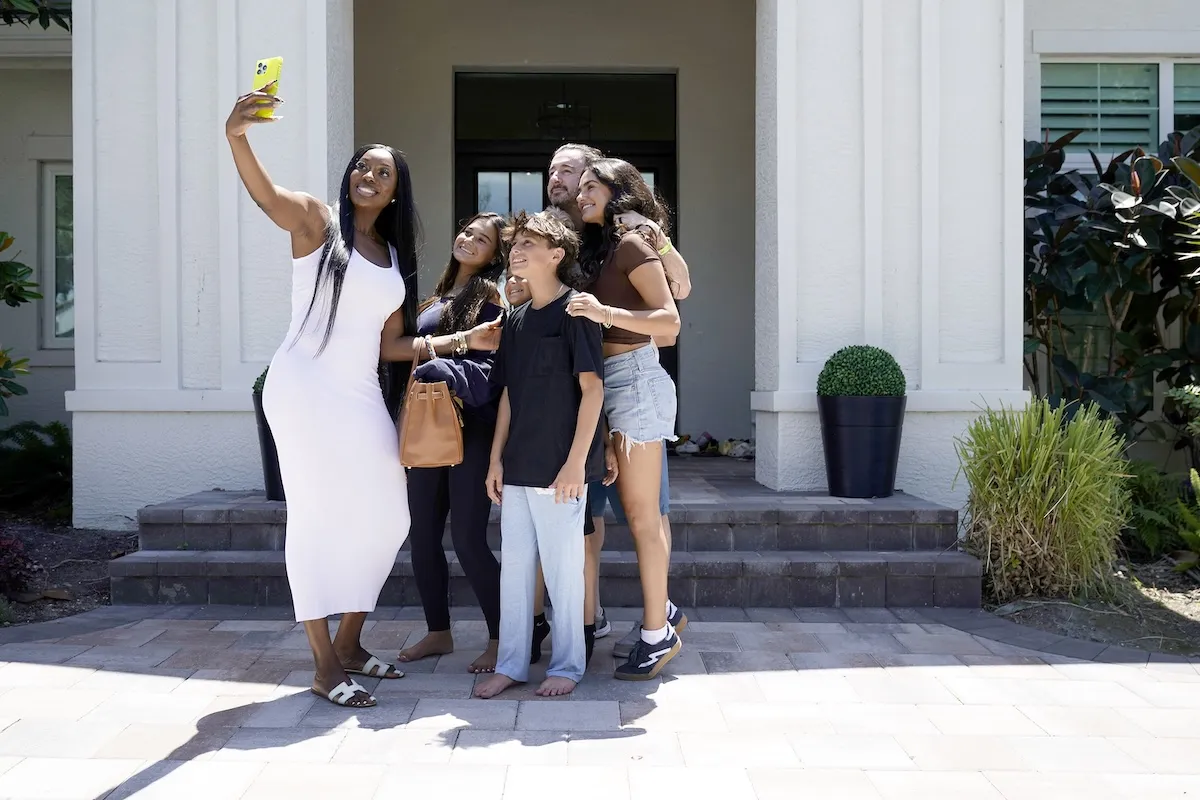
Wendy Osefo Caught in New Controversy as ‘Wife Swap’ Co-Star Mom Claims Bravo Erased ‘Core Part’ of the Story
There’s more drama in Dr. Wendy Osefo’s life as The Real Housewives of Potomac star was drawn into controversy regarding her Wife Swap co-star, Alethea Shapiro.
In the final episode of Wife Swap: The Real Housewives Edition, titled “All is Ferret in Love and War,” audiences were introduced to Shapiro, who traded lives with Osefo. Known for her structured household, the Bravo star runs things with precision — a lifestyle Shapiro once shared. However, after moving from New York City to Florida, the mother of four sought a more relaxed, easygoing family life.
When the episode highlighting her laid-back parenting approach aired, Alethea was surprised. She claims Bravo’s “selective editing” distorted her intentions and portrayed her as an unfit or careless parent. Here’s what to know.
‘Real Housewives’ star Dr. Wendy Osefo swaps lives with a Florida mom
Wendy Osefo describes her household as described as structured, with a strict schedule, clear rules, and an emphasis on education. Alethea Shapiro lives in the Naples, Florida, area and self-identifies with what the show calls “low-demand parenting.” This means fewer rules, more independence for her children, and a more relaxed household rhythm.
After Osefo heads to Florida and Shapiro visits Maryland, the lifestyle contrast was striking. Wendy admitted that being in Alethea’s home challenged her sense of order and control. On Alethea’s side, stepping into Wendy’s world meant engaging with structure and expectations.
Wendy’s episode was delayed and rescheduled due to legal issues regarding her and her husband’s arrests on fraud charges. But it finally aired on November 9, 2025. One of the big Wife Swap takeaways for Wendy was how this swap affected her perspective on parenting, her husband’s role, and the idea that perfection isn’t required every day. Unfortunately, Alethea’s takeaways weren’t so positive.
Alethea Shapiro calls out Bravo for ‘stripping’ her life of ‘meaning and depth’ on ‘Wife Swap’
Diagnosed in 2023 as “late-diagnosed AuDHD,” Alethea took to Instagram to set the record straight. She said she took time to reflect before posting because she wants to express her truth when she wasn’t frustrated. The mom of four said she felt like her family and the public saw two different shows. “I saw humor, realness, the lightness & love I brought into parenting, but some viewers saw something else,” she wrote in her caption alongside a photo of her and her family.
Alethea said the edit “erased a core part” of her identity as a “late-diagnosed AuDHD woman.” She called this erasure “harmful to the neurodivergent community,” calling her diagnosis “central to her story” but edited to look like “detachment or carelessness.” A “deliberate erasure,” according to Alethea, she said, “Bravo stripped it of its meaning & depth.”
The Florida mom said low-demand parenting gives her kids autonomy, calling out Bravo for taking her family’s words out of context. Alethea continued, “When neurodivergent parenting or self-diagnosis is reduced to lazy, it perpetuates ableism by making intentional neuroinclusive design LOOK like dysfunction INSTEAD of innovation.”
What is low-demand parenting?
Low-demand parenting emphasizes reducing unnecessary pressure and expectations on both parents and children, especially around compliance, productivity, or social “shoulds,” as the Autism Awareness Centre Inc. reports. This approach aims to remove or reduce demands that cause stress, conflict, or burnout. Instead of enforcing constant structure or high expectations, parents focus on connection, regulation, and meeting their child where they are.
PDA (Pathological Demand Avoidance) communities, particularly in neurodiversity circles, popularized the term as a way to help children who experience anxiety or meltdowns when faced with everyday demands. It’s since expanded into mainstream parenting as a gentler, more mindful alternative to authoritarian or intensive parenting styles.
Low-demand parenting essentially believes that, if something isn’t essential for our well-being right now, we can let it go. Many parents who choose this approach emphasize that this doesn’t mean “no rules” or neglect. It’s about creating calmer, more flexible households by easing the pressure on everyone involved. This could look like encouraging collaboration instead of command-and-control dynamics. It could also involve a reduction in power struggles because you’ve removed nonessential rules or schedules.


